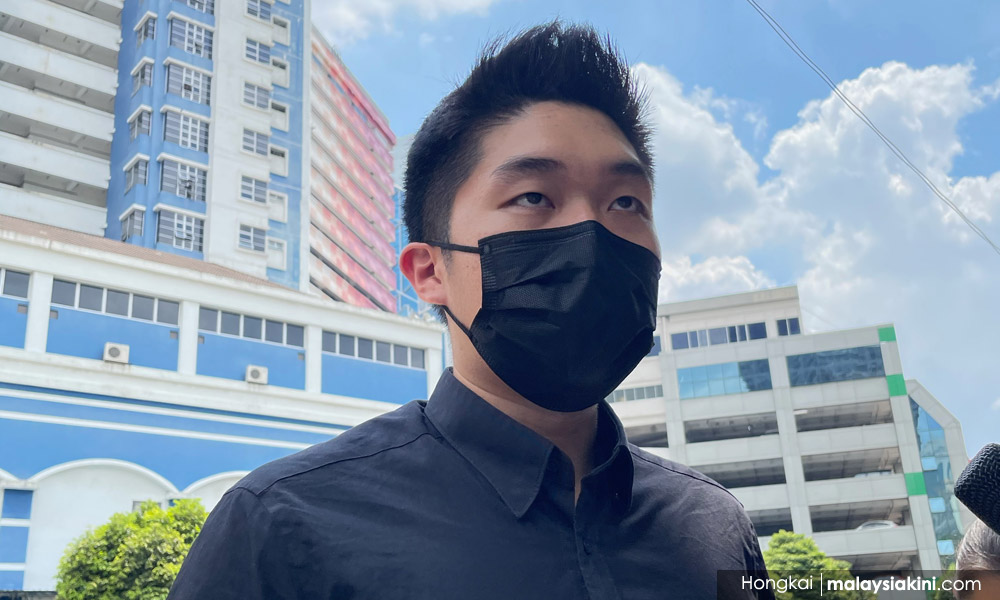Activists have condemned police for questioning them over a recent peaceful protest at Parliament and called for a review of the policy.
Bersih chairperson Thomas Fann (above, right) called it a waste of police resources and time, adding that it could amount to harassment of citizens’ freedom of expression.
"This is abnormal in a democratic country. The rakyat, represented by NGOs, should have the right to come before Parliament to hand over memorandums and hold peaceful protests. It's guaranteed under our constitution.
"So, why are the police still calling activists like ourselves and others to be questioned?
"We call for a total review (of the policy). In a maturing democracy-in-waiting that we are, there needs to be a review of the policy so that these actions will not be seen as harassment of our citizens' right to gather peacefully to engage politicians," Fann said.
Fann, along with Suaram coordinator Wong Yan Ke, was questioned by police at the Dang Wangi police district headquarters around 3pm today. They left about an hour later.
They were questioned under the Peaceful Assembly Act's Section 9(1), which stated that the organiser of a rally has to notify the police five days before the event is held.
This is in connection to a rally in which two memorandums were handed over to Parliament concerning the anti-party-hopping law and the Independent Police Conduct Commission (IPCC).
Wong said organisers fully cooperated with the police during the protest and it is "unacceptable" for them to be called up later.

"Civil societies have no special rights like MPs to debate or vote for or against these bills in Parliament.
"There, demonstrations and the handing over of memorandums are normal practices in any democratic country.
"Although we protested peacefully, we were summoned to give our statement to the police. It is unacceptable.
"Investigations against organisers or protestors should not become a custom for police," Wong added.
Bersih's memorandum demanded the government to enact anti-party-hopping legislation as agreed upon in a pact with the opposition, while Suaram's memorandum was to reject the IPCC, widely seen as a watered-down version of the Independent Police Complaints and Misconducts Commission (IPCMC).
The government had previously withdrawn the IPCMC bill and reintroduced it as the IPCC bill instead, with the major difference being the latter has no power to punish errant police officers.
Suaram demanded that the government reintroduce the IPCMC bill instead to restore the credibility of the police.
Nearly 40,000 people and 37 NGOs signed the memorandum to introduce the anti-hopping law, while the memorandum to reject the IPCC bill was signed by nearly 50,000 people and 52 NGOs. - Mkini




No comments:
Post a Comment
Note: Only a member of this blog may post a comment.